Text

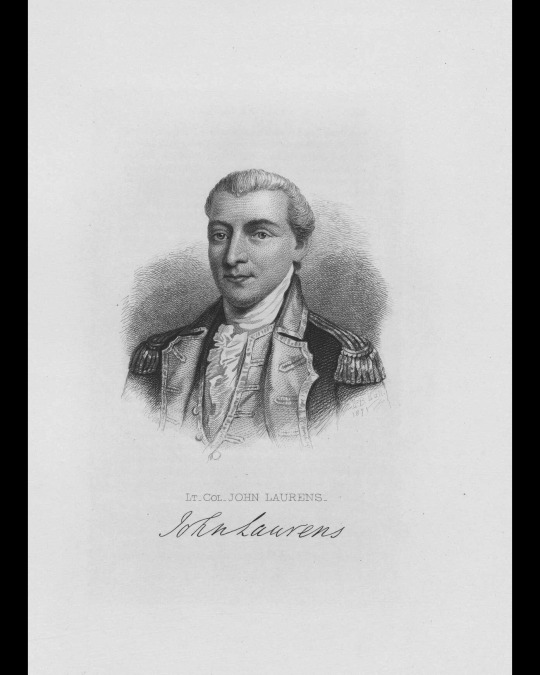
28th October, 1754.
Today marks the 267th birthday of John Laurens. Patriot. Early abolitionist. Artist. Reckless leader. Tragic hero. Aide-de-camp.
Known for his courage and somewhat reckless behaviour during the Revolutionary War, Laurens was also known as an artist who campaigned and supported the abolition of slavery. It’s well known that Laurens also sought to recruit enslaved people from the Southern colonies with the promise of emancipation after their service. This sadly never came to fruition the way Laurens envisioned it.
Alongside this, Laurens was also part of the “military family”, that surrounded Washington and was formed the other 32 aide-de-camps including figures such as Tench Tilghman, Dr James McHenry- who later joined Lafayette’s staff and of course, Alexander Hamilton. The relationship between these two has often been speculated and continues to be so to this day. However it is defined, it was unique and formed out of love and rapport.
Laurens, like all figures, is flawed. But there is something about this reckless, melancholic patriot that is unique and should be celebrated. So cheers to you Laurens, the fight for freedom was won, but we still fight for freedom for all this day 🥂
#celebrating by going through my old posts#getting distracted by Johannes von muller#and spending an hour looking at books in German on hathi trust#like looking at it longer will cause me to spontaneously know German and also all the info on Müller and Kinloch ever#anyway this isn't about them#happy birthday John
45 notes
·
View notes
Text
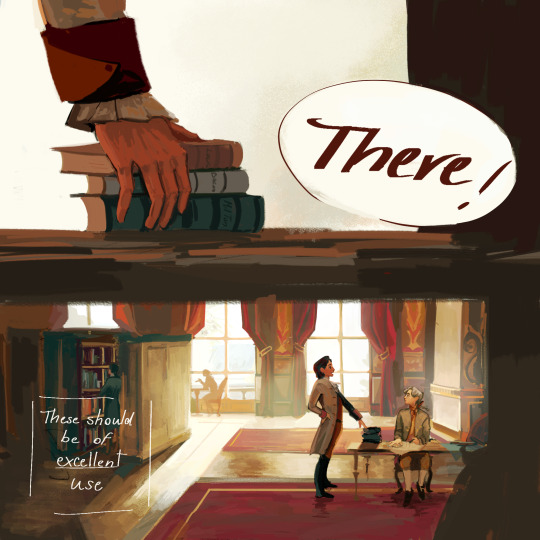
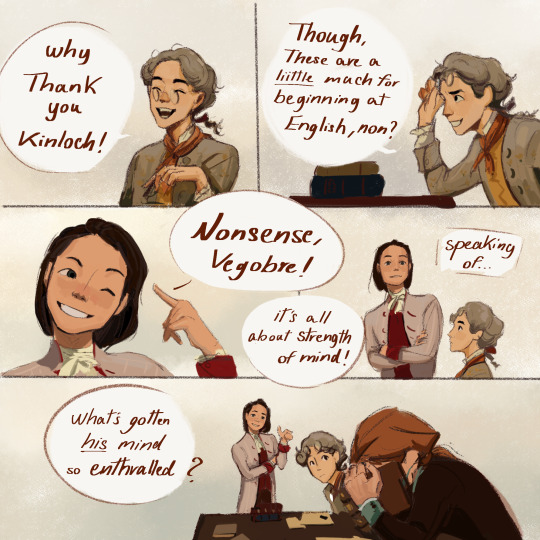
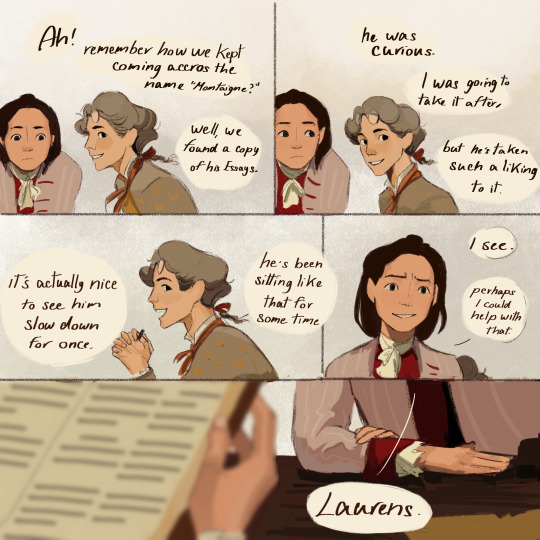
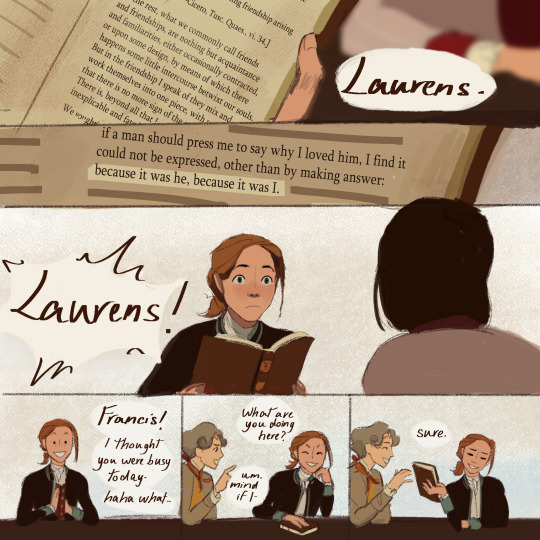
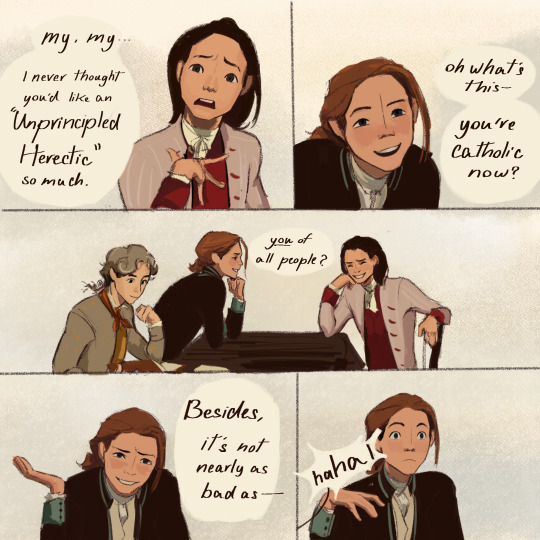



Chapter 28: On Friendship
#ksfhksadjghkasdjhgkdfsjhgkjsdfhg#coming back from the dead for This and ONLY THIS#francis kinloch#John Laurens#louis de manoël de végobre#Montaigne#art#not my art
630 notes
·
View notes
Note
what are your favorite quotes from john laurens?
I have particular inclination for his bitch-ier quotes, but nonetheless;
“You asked me, my dear father, what bounds I have set to my desire of serving my country in the military line? I answer glorious death, or the triumph of the cause in which we are engaged.”
— John Laurens to Henry Laurens [January 23, 1778]. From Washington's headquarters at Valley Forge. [x]
“The ambition of serving my country, and desire of gaining fame, leads me to wish for the command of men. I would cherish those dear, ragged Continentals, whose patience will be the admiration of future ages, and glory in bleeding with them.”
— John Laurens to Henry Laurens, [9 March 1778]. From Washington's headquarters at Valley Forge. [x]
“if it affects only a number of rich men & will contribute to equalizing estates I shall not regret it.”
— John Laurens to Henry Laurens, [February 24, 1778]. From Washington's headquarters at Valley Forge, about a fire that had wrecked Charleston the previous month. [x]
“I have been in several actions; I did not call that an action, as there was no action previous to the retreat.”
— John Laurens at Charles Lee's court-martial in July 1778. [x]
95 notes
·
View notes
Note
I particularly love this part “so your impatience to have me married is misplaced; a strange cure by the way, as if after matrimony I was to be less devoted than I am now.”
Like, the implications. It’s so rare to see Hamilton so direct and not talking like he’s dancing around everything. This is so direct and clear.
First, Laurens was impatient for Hamilton to get married.
Then the diction Hamilton uses: Laurens saw it as a cure. A cure. That’s heartbreaking.
The positioning of matrimony as something that would destroy their relationship. This quote is insane, this whole letter is just. Yea
Yea :,)
#sad lams#John Laurens#Alexander Hamilton#letters#ask#lots has been said on this quote so I don't wanna rehash it again but yea imo its one of the most suggestive things we have
34 notes
·
View notes
Note
OP this is great!
I have a post that’s kind of old but it’s a little bio of Vegobre that goes over some of his life beyond Kinloch and Laurens.
I didn’t know about that letter to Müller comparing his duke scandal (I also have a post about that.) to his time with Kinloch... that is really intriguing!
The thing with Kinloch, Végobre, and Müller and Bonstetten etc, is, that the question is not really if they were Not Straight, but more just about what were the various relationships between them. (I think the fact that they spent so much time together, and that Müller was definitely gay provides a lot of evidence for the rest of the groups’ sexualities.) You can definitely make a case for Kinloch/Vegobre, but then how did that fit in with Müller/Kinloch which also has a lot of evidence? What about Müller/Bonstetten, then? (Which is the most definitive relationship.)
Anyway, just absolutely dying right now at someone else posting about Kinloch’s Gay Retreat.
Can you tell me about Louis de Vegobre and his possible relationship with Laurens and Kinloch?
Sure! Others will certainly know more, but here’s a little of what I’ve pulled together about these three.
Louis Manoel de Vegobre was a Swiss lawyer and intellectual who befriended Laurens during his time as a student in Geneva. He tutored Laurens in mathematics, and in return Laurens taught de Vegobre English. Kinloch arrived Geneva in May 1774, and although they only spent a few months together there (Laurens left in July 1774), they quickly formed a close-knit circle, studying and socialising together, and mingling with other English students and eminent Genevan scholars and scientists.
There is little written correspondence from that time, as there was no need to write letters to those who lived so close. But it is evident from Laurens’ letters after his departure that he loved his time in Geneva, in large part because of the relationships he had built there - he writes to Kinloch on 23 August 1774 that “I dont know when I shall get into such a valuable Set of Acquaintance as I have left”.
Whether all of this remained purely platonic, in the style of romantic friendship, or extended into homoerotic or even homosexual realms, is impossible to prove definitively - but there is a good deal of evidence that the three of them were more than “just friends”.
For one, they mingled with figures who were known to have homosexual inclinations. Among these was Swiss historian Johannes von Müller (himself at the centre of a web of queer figures, including Swiss writer Karl Viktor von Bonstetten), who was known for his homoerotic love letters and, per Rictor Norton, “always travelled with young male companions, and even set up house together in the Alps with the American Francis Kinlock [sic]”. They stayed together in Chambésy in 1775, which presumably is what Laurens is referring to, with evident longing, in his letter to Kinloch on 10 March 1775:
Mr. Boon has communicated your plan of spending the summer with Vegobre in some convenient retreat in Switzerland, a plan which I should of all things like myself, and which I dare to say you will find great benefit from.
What three young men of a certain persuasion might get up to in the privacy and safety of an alpine retreat I will leave to your imagination.
Side note on Müller and Kinloch - in 1802/3, Müller was involved in a homosexual scandal, after a former pupil faked love letters to him from a made-up admirer, to which Müller responded with equal (and damning) fervour. The ensuing scandal cost Müller his fortune. He writes a letter to Kinloch on 12 May 1803, explaining his dire situation, to which Kinloch responds:
L'idée de ce qui aurait pu arriver à cette extreme nocturne me fait frémir - Vous souvient il, cher ami, du commencement do notre liaison à Geneve?
My transcription:
The idea of what could have happened at this nocturnal extreme makes me shudder - Does it remind you, dear friend, of the beginning of our affair in Geneva?
Clearly, the mention of the scandal was a reminder to Kinloch of whatever they may have gotten up to twenty years prior.
In Laurens’ absence from Geneva, Kinloch and de Vegobre remained close, and all three of them wrote to and about each other using expressions of deep love and affection, expressing a desire for contact and closeness - which, to me, often veers into the romantic.
Here are some examples, in chronological order:
My beloved, my dearest friend is Kinloch […] Let me say again: Kinloch is my beloved, my dearest friend. […] You have began to make me feeling how hard it is to see the departure of a man to whom one’s heart is addicted
Louis de Vegobre to John Laurens, 24 December 1774
I would be wrong to hide from you that I was upset at you [but now I want to] occupy myself only with the pleasure I had upon seeing that your heart is without fault, and that you have maintained the same sentiments towards me that you expressed to me when you left Geneva. […] Permit me to remark to you that [a time of adversity] is where we know our friends, and that it is here (I dare say) that you will see that the attachments of my heart are not a light bond formed by pleasure which does not last beyond it. […] You congratulate me on my friendship with Kinloch, oh how right you are to congratulate me! What an excellent man! What a friend I have in him! […] I repeat that I am entirely at your service & that I responded very sincerely and very deeply to the feelings that you have expressed for me.
Louis de Vegobre to John Laurens, 18 October 1775
You and I may differ my Dear Kinloch in our political Sentiments but I shall always love you from the Knowledge I have of your Heart.
John Laurens to Francis Kinloch, 12 April 1776
we hold too fast by one anothers hearts, my dear Laurens, to be afraid of exposing our several opinions to each other […] Be certain that I never shall forget you
Francis Kinloch to John Laurens, 28 April 1776
that Letter & the pretty gift that you attached are very agreeable marks of your friendship […] I learnt that I was loved & esteemed by you as much as I could have desired […] I am much persuaded, my Dear, that if we could live together our mutual happiness would be augmented; especially when I think of the calamities that surround you, I would desire to be close to you, to witness your fortitude and to offer you the relief of my friendship […] I saw this morning our friend Kinloch: what shall I tell you of him which you don’t already know? […] I regard it is as one of the joys of my life to have become his friend.
Louis de Vegobre to John Laurens, 7 June 1776
And after Laurens’ blistering letter to Kinloch about their differing political views, Kinloch seemingly responds with hurt and offence, which Laurens tries to smooth over with a reaffirmation of his feelings:
I have no Copies of what I write, and therefore can’t be exactly sure of all the Expressions which I used in my Letter, this I am persuaded of that there was nothing in it that could be construed to throw any Imputation upon the Qualities of your Heart on account of the side you took in our political Dispute […] It was from the great Opinion I had of your Heart that I first wish’d to form a Friendship with you, it is from the great Opinion that I still have of it, that I am exceedingly desirous of cultivating and improving that Friendship […] I still think your political principles wrong, the Sentiments which you have adopted with respect to your own Country strike me with horrour, and I hope you’ll change them_ but I am persuaded you think they are right and your Heart with me is unimpeached_
John Laurens to Francis Kinloch, 30 September 1776
(Extracts above from de Vegobre’s letters of 18 October 1775 and 7 June 1776 are taken from my translations of the original French.)
#omg you linked riefkorrespondenzen Karl Viktor von Bonstettens und seines Kreises#OP do you understand how much time I have spent poring over that book#the answer is too much time#google books snippet view my beloved#Johannes von Müller#Charles Victor de Bonstetten#or Karl Victor?#I've seen it both ways?#Kinloch's Gay Retreat#John Laurens really just left Geneva right in time to miss the Height of the Gay#like I love how he just leaves and then these SHENANIGANS are going on#poor john#have fun at law school buddy#francis kinloch
80 notes
·
View notes
Photo
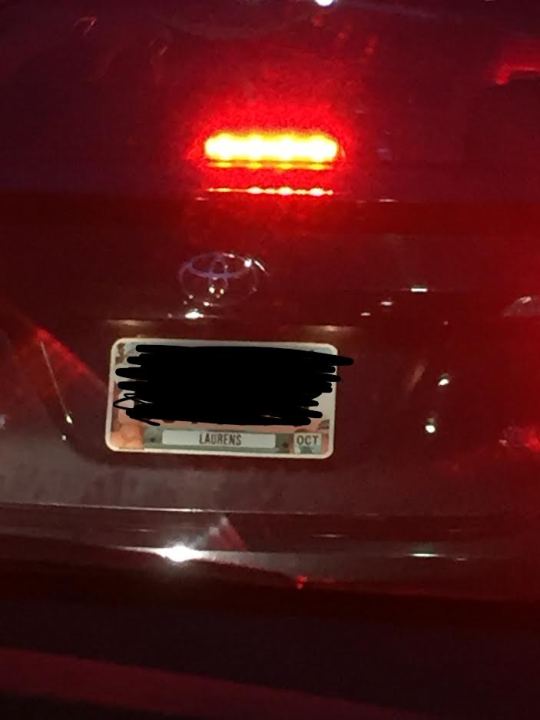
I was driving a few days ago and saw this license plate-- from Laurens, Georgia, I assume. (The county is named after John Laurens.)
I’m taking it as a sign. I need to start posting here more often.
15 notes
·
View notes
Quote
In spite of Schuylers black eyes, I have still a part for the public and another for you; so your impatience to have me married is misplaced; a strange cure by the way, as if after matrimony I was to be less devoted than I am now.
Alexander Hamilton to John Laurens, September 16, 1780
I was just re-reading this quote for the first time in a while, and realized it’s got some unique qualities that point to its integrity as a piece of evidence.
With the Laurens-Hamilton relationship, how many possible meanings a letter has is almost more important than what is said in the first place. This isn’t a quote that can be excused as humor or teasing or “how people wrote back then.” It’s a serious quote from Hamilton that talks about his relationship with Laurens, which we don’t have to many of. It’s not like the beginning of the April 1779 letter, which can be brushed off as “how people wrote.” It’s not innuendo that can be excused as “bawdy humor.” It’s a serious and non-flowery or sentimental sentence which contains many elements that point to a romance between Hamilton and Laurens. There is no other strong explanation for Laurens to be directly compared to Schuyler. (And especially the “black eyes” part-- in spite of something Hamilton is attracted to about his wife, he still has a “part” for Laurens...) The rest of the quote is even more implicating-- why would Laurens want Hamilton to be married so that Hamilton’s affection would wane? Why would their relationship need a cure if it was a socially acceptable friendship?
tl, dr: Because Hamilton’s writing is so direct and clear, with so few opposing interpretations, (but many implications!) or the ability to be construed as a joke, this letter is a pretty unique piece of evidence, and one of the strongest to suggest a Laurens-Hamilton relationship. (And good for refuting criticism.)
#im sure this has been said before#I was just re-reading it in an old post I was looking at#and I was like#how is this relationship not acknowledged in academia#this is literally such a clear implication#I think if I had to use one quote to convince someone this might be the one honestly#and I guess you could argue maybe that Hamilton is saying hey I won't forget about my War Bros after being married#but its a pretty weak argument and I feel like the obvious reading here is the one I outlined above#Alexander Hamilton#John Laurens#letters#quotes#quote analysis#this is also not to say that letters like April '79 aren't pretty definitive evidence#but if you want to convince someone#there are technically ways people can get around the innuendo in that one#not reasonable ways#but nonetheless
159 notes
·
View notes
Text
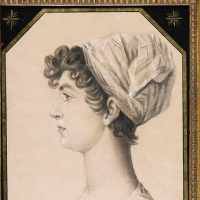
According to this questionable ancestry site, this is Kinloch’s daughter... so... she got the dark hair from somewhere, certainly.
oh my god this time last year was kinloch hair colour discourse. its still fucking black btw. you pieces of shit.
#did people use this as evidence last year?#I actually was not Aware of this Discourse#francis kinloch#eliza kinloch#tbh I draw him with wavy dark brown hair
42 notes
·
View notes
Text
so I guess the question is, is John Laurens Goncharov or Andrey?
29 notes
·
View notes
Text
today is indigenous people's day!
this is a very important day to me so i thought i would share some good charities and links to help educate and support native peoples. <3 <3 please consider looking into these and sharing!
legacy of hope: a charity and organization to help with the continuing effects of the horrors of the residential school system
a list of places to buy from native artists
a canadian charity dedicated to helping indigenous families
suicide prevention resources: indigenous communities face higher rates of suicide, especially in teens, so this is extremely important.
the NLG supports a lot of important efforts as well as defending indigenous water protectors! here's another foundation for water protectors.
and here's two more organizations that mainly aim to help indigenous youth: indspire and true north aid
536 notes
·
View notes
Text
I was transcribing an undated letter to John Laurens from Jean-Antoine Chais when I came upon this surprising line:
Les premiers mois que nous avons passé ensemble m’avoient fait esperer que j’avois trouvé pour toute ma vie un vrai Pilade, et je m’en felicitais bien sincerement.
The first months that we spent together made me hope that I had found a true Pylades for life, and I was sincerely pleased.
Chais was one of John’s tutors in Geneva, and John and Harry lived in his home from June 1772 until John, suddenly and without prior explanation, moved Harry to another home in February 1773, and then moved out in June 1773 himself; by all accounts, John’s relationship with Chais had broken down quite suddenly and John was cold to him afterwards.
John explained his motives to Henry in a letter (rather than in person, even though Henry had visited them a few months earlier to check in); Henry found the reasoning persuasive but chose not to repeat it to Chais. And John definitely bent the truth in that letter, because he claims that Chais was on board with the move - but Chais seems to have been blindsided by it, and wrote several letters about the matter to Henry when he couldn’t get the answer out of John.
But the curious thing is the reference to Pylades.
I’m not a Classics expert - and if you are, please help me out - but some brief research shows that Pylades (a mythological figure from Greece) was understood as a homoerotic figure - especially in the 18th century - due to his intense, possibly romantic relationship with Orestes. For examples, this 18th century cameo of them includes “homoerotic overtones”, and Lord Byron lists Orestes and Pylades among a series of same-sex couples in 1807.
There’s also this comment on Wikipedia (uncited, so taken with a pinch of salt):
The wider context of these remarks, describing the physical intimacy open to male pairs, indicates that the love exemplified by Orestes and Pylades would not necessarily have excluded even more overt homoerotic or homosexual elements. […] The fame of Lucian’s works in the 18th century, as well as the generally well-known tradition of Greco-Roman heroic homoeroticism, made it natural for theatre audiences of that period to have recognized an intense, romantic, if not positively homoerotic quality, to the relationship between Orestes and Pylades.
Now, Chais was John’s classics tutor. He would surely have been aware of the connotation. And if he was merely trying to express their deep friendship, he could have picked one of a dozen other references that didn’t have a homoerotic undertone - or, given their short time together, a slightly less intense one, since Orestes and Pylades were usually depicted as friends from childhood.
The rest of the letter, which I am transcribing and translating to post later, is full of frustration and declarations of affection.
Finally, there is this mention of Chais in 1781 - almost ten years later:
Finally, a Genevan requests that a letter be forwarded to an American in France. Jean-Antoine Chais writes from Versailles on June 6. He has learned that the oldest son of Mr. Laurens, formerly the president of Congress, is in France, and he takes the liberty of enclosing a letter to be delivered to him. The relationship they had in Geneva several years ago gives him hope that Laurens will accept the letter. If Laurens is not there, Franklin may throw the letter in the fire.
Now for some speculation…
If John and Chais were in fact involved in some kind of homoromantic or sexual relationship, that would explain a few things - the Pylades mention, the tone of the letter, the sudden breakdown, the fact that John doesn’t address his desire to move out with Henry in person while he’s in Geneva (where whatever embellished reasoning he gave may quickly have crumbled under a small amount of investigation).
Bears further investigating, I’d say!
#why do you do this to me#already pulling up Evolution of a Federalist pdf#Jean-Antoine Chais#John Laurens#Henry laurens
132 notes
·
View notes
Note
I hate how Laurens’s jealousy around Eliza still makes me feel bad for him even though he literally had a wife in England... and a child. I really wonder how Laurens’s wife Martha was resolved between Hamilton and Laurens, given that she is never mentioned again (to my reading) in any letters beyond the April 1779 one, where Hamilton first finds out about Martha.
Also, complete speculation, but sometimes I wonder if the “pater familias” letter was maybe also Laurens trying to assuage his own guilt about leaving his family-- i.e., trying to convince himself that what Hamilton was doing (spending time with his family at the expense of a career/military rank) was excessive when Laurens had dropped the entire ball on the whole family thing to fight in the war.
Hi! Were there any instances of Laurens being jealous?
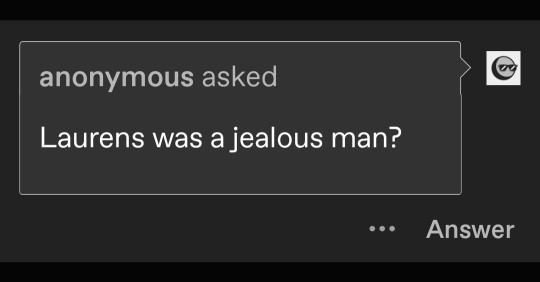
Quite.
Although I wouldn't exactly blame him for such, honestly. The prime examples I will be using are in regards to Hamilton's marriage with Elizabeth Schuyler. As they are what was mentioned in the post that these asks stem from.
I would take Hamilton as a great source of reading Laurens's character, with how close of lovers they were. So it is notable that Hamilton seems to sort of be aware of Laurens's envy, and mentions it a few times in their letters. For starters, in the “Cold in my professions, warm in my friendship...” letter [April 1779] Hamilton goes on a long ramble of Laurens finding him a wife in South Carolina. As Hamilton was jealous himself after discovering Laurens's, probably never mentioned before, wife, Martha Manning. In a way of petty revenge, he spends a long paragraph giving the details he wants in a wife, knowing it will feist him, as he says at the end;
“Do I want a wife? No—I have plagues enough without desiring to add to the number that greatest of all; and if I were silly enough to do it, I should take care how I employ a proxy. Did I mean to show my wit? If I did, I am sure I have missed my aim. Did I only intend to frisk? In this I have succeeded, but I have done more.”
(source)
Fast forward, around the summer of 1780, and Hamilton is to be wedded to Elizabeth Schuyler. When reading Hamilton's letters or discussions of Elizabeth, they are always extremely affectionate and always with adoration in her regards. So it is interesting that when Hamilton must confess the news to his lover, he tries hard to describe Elizabeth in the most dull terms he can to probably try and ease Laurens's jealousy. As mentioned in another letter while Laurens was a prisoner of war [30 June 1780];
“Have you not heard that I am on the point of becoming a benedict? I confess my sins. I am guilty. Next fall completes my doom. I give up my liberty to Miss Schuyler. She is a good hearted girl who I am sure will never play the termagant; though not a genius she has good sense enough to be agreeable, and though not a beauty, she has fine black eyes—is rather handsome and has every other requisite of the exterior to make a lover happy. And believe me, I am lover in earnest, though I do not speak of the perfections of my Mistress in the enthusiasm of Chivalry.”
(source)
With these instances in mind, they heavily imply Laurens was prone to being jealous (And I mean, can you blame him? It's literally his lover getting married away).
Even more so, Laurens's jealousy never seemed to have faded. Throughout the surviving correspondence we have between Hamilton and Laurens, Laurens never mentions Hamilton's new family, not even when Hamilton would bring them up continuously in his letters. Laurens never spoke of Elizabeth, in almost refusal to accept that she was Hamilton's wife or her existence.
There is only the one moment Laurens spoke of Hamilton's family, and it was bitter resentment towards Hamilton's firstborn son, Philip Hamilton, taking up all of Hamilton's time. He writes with complaints that Hamilton is spending too much of his time, or is too indulged, in his private family life. Which isn't too unexpected when you consider how we all know Hamilton tended to be as a newly, but also proud, papa — for example, his affectionate and rambling letter to Meade about Philip as well. Laurens must have been annoyed, or hurt even, by the lack of letters. And when there was letters, they were about his grand new family that didn't involve Laurens. So with boiled envy, Laurens wrote [July 1782];
“Your private affairs cannot require such immediate and close attention; you speak like a pater familias surrounded with a large family numerous progeny_”
(source)

An interesting detail about the original letter, is that Laurens chose to scratch out “large family” and replace it with “numerous progeny”, as to instead change the focus from the Hamilton family as a whole to just Hamilton's child. Thus Laurens continues to fail to mention Elizabeth in any of his letters, even adamantly purposefully. Tis clear here that Laurens actively chose to go back on his wording to avoid any mention of Elizabeth, even indirectly.
In Laurens's defense — even when really condemnable — as much as Hamilton was fully accepting of being married and still having a relationship with Laurens, JL himself wasn't as keen (He was somewhat, as they still obviously continued with affectionate letters; even after matrimony). He was often feeling alone and depressed during their letters, and Hamilton's reminders of his seperate family and loved ones was not helping in the slightest.
235 notes
·
View notes
Text
John Laurens' London address
John lived in London for two stretches of time - after first arriving in England in 1771-2, and then when he returned from Geneva in 1774.
During the first period, he lived with Henry in Chelsea and then Fludyer Street in Westminster - a street that ran parallel to Downing Street and led directly onto St James's Park. It doesn't exist anymore.
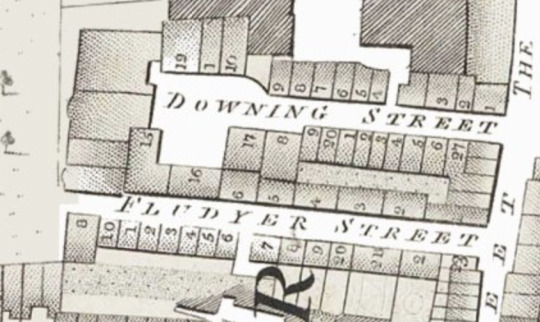
When John returned to start his studies at Middle Temple, he moved in with Charles Bicknell and his family in Chancery Lane. Historically, it was rare to give more than just the family and street names when directing post, but I wanted to see if I could track down the exact location of Bicknell's house - and I think I've come pretty close!
After a considerable amount of digging, I found an insurance record for Charles Bicknell, giving his address as "opposite the Rolls Tavern" on Chancery Lane. The 'Rolls Tavern' is actually the Crown and Rolls Tavern, a popular meeting place for lawyers and debating societies in the late 18th century.
But of course, that address is also hard to come by. Here we have two clues.
The first is that further digging into insurance records seems to indicate that the tavern was at number 9 Chancery Lane - though that's not incredibly helpful, because there are several number 9s on the street.
The second is that taverns and public houses were often named after significant nearby landmarks - and indeed, the area towards the southern end of Chancery Lane, where it meets Fleet Street, is part of the Liberty of the Rolls district, which included the Chapel of the Rolls, and the Rolls Court and Gardens (all named after the fact that the court rolls, or legal records, were kept in storage there).
If we put this together, we do in fact find a number 9 backing on the Rolls Court, which might well have been the location of the Crown and Rolls Tavern. As for what would count as "opposite", that narrows it down to a few homes on Horwood's Plan of London:
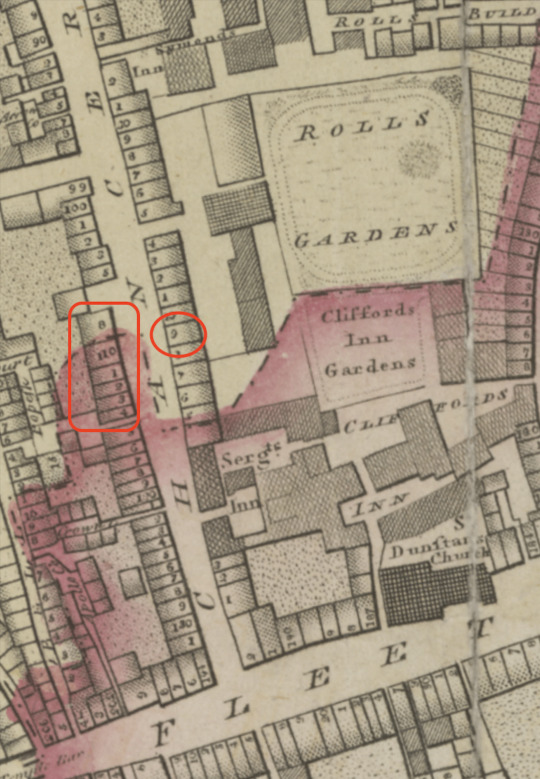
None of the original buildings from the time period survive, but...
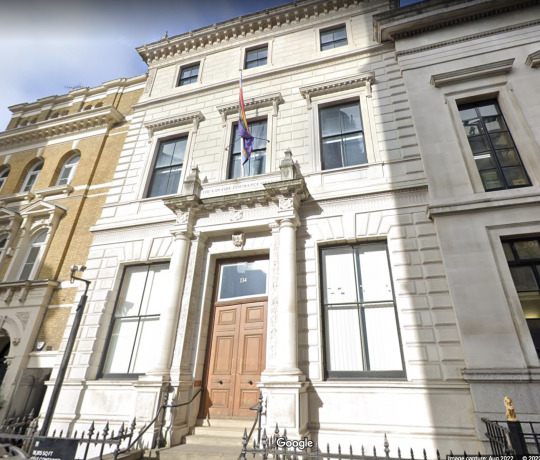
I'm taking the 🏳️🌈 as a sign!
146 notes
·
View notes
Text
Part of the reason I’ve been eh about posting lately is my deepening understanding about how the American mythos and idolization of the creation of America have been directly leading to what is going on currently.
Like, could we hold up a second? Why does it matter whether the constitution protects a right specifically or not? It matters because our political systems make it matter. Could we not just, you know, use our own sense of right and wrong and look at data and evidence and the stories of people who are affected by these decisions most?
Of course not. Because the constitution has replaced rational decision making and morality for an alarming amount of people in power in America. And the court is the most blatantly obvious example of how fucking damaging that can be to basic rights. Abortion yesterday. Same-sex marriage could be next.
The constitution has become a tool of the GOP to use however they please and twist however they want. And the reason they can do that is, well, firstly because they literally will do anything to cement their bigotry into law, and secondly, because the constitution is not meant for this century. The constitution is being asked to do and protect so much more than what is written in it. And so we are becoming an oligarchy of judges, who can literally re-write the meaning of the document that states the bottom line of rights and rules for America.
Rights-- ANY kind of right-- should not be decided based six judges’ interpretation of a 230 year old document. That’s just... that’s just common sense, guys. (And, by the way, half of those judges were appointed by a president the extent of whom’s attempt at installing himself as dictator is being extensively revealed by the Jan. 6 hearings.)
But since some people seem to care so very much about what the founders would think of the state of our country today, let’s let Thomas Jefferson speak for himself,
“Some men look at Constitutions with sanctimonious reverence, & deem them, like the ark of the covenant, too sacred to be touched. they ascribe to the men of the preceding age a wisdom more than human, and suppose what they did to be beyond amendment. […] we might as well require a man to wear still the coat which fitted him when a boy, as civilised society to remain ever under the regimen of their barbarous ancestors.”
This was common sense for the people these judges claim to be honoring. A country is not meant to be held back by its founding documents.
We were thrown backwards fifty years yesterday by the whim of six judges, who do not represent the popular opinion of Americans. Any country where this can happen is not a true democracy. This decision is a symptom of the vast problems we have to face in America. My only hope is that this helps people realize how flawed our systems truly are and begin to fight against them.
The dismantling of Roe v Wade will go down in history as one of the most damning indictments of american politics and a public health decision, no matter how short or long lived, that will shape the pain and suffering of generations to come.
#abolish the supreme court#politics on main#if I get attacked so be it ig?#I don't pretend to be the most educated person about this#but this is how it seems to be going to#me#and we are not a true democracy for many other reasons btw#like uh the electoral college for instance :D#history#constitution#tw profanity
57K notes
·
View notes
Text
Damn, Chernow, for an “unwavering abolitionist” Laurens sure did waver a lot
53 notes
·
View notes
Quote
Von Müller had not known Kinloch long before he began to consider the possibility of settling in America. He was much in the same position as Klinger; his plans for the future were undecided, and Kinloch urged him to go with him to America should the war make a favorable turn. He was all the more inclined to go because he was anxious to make a name for himself [...] When the time for the a final decision came, it was only his attachment to his friend Bonstetten that kept him from that momentous step.
University of California Publications in Modern Philology, Volumes 13-14
#researching Müller while listening to My Heart is Offered Still to You hits different man#Johannes von Müller#Charles Victor de Bonstetten#francis kinloch#quotes
11 notes
·
View notes
Quote
Miss Schuyler wore white, with a twist of black velvet in her powdered hair and another about her throat, and would have been the belle of the party had Hamilton permitted other attentions. But she gave him all the dances he demanded, and although her bright manner did not lapse toward sentiment for a moment, [Hamilton] went home so elated that he sat scribbling poetry until Laurens pelted him with pillows and extinguished the candle.
The Conqueror Being the True and Romantic Story of Alexander Hamilton by Gertrude Franklin Atherton
#jealousy much?#John Laurens#Alexander Hamilton#quotes#oh btw this is historical fiction#but its still very cute
107 notes
·
View notes